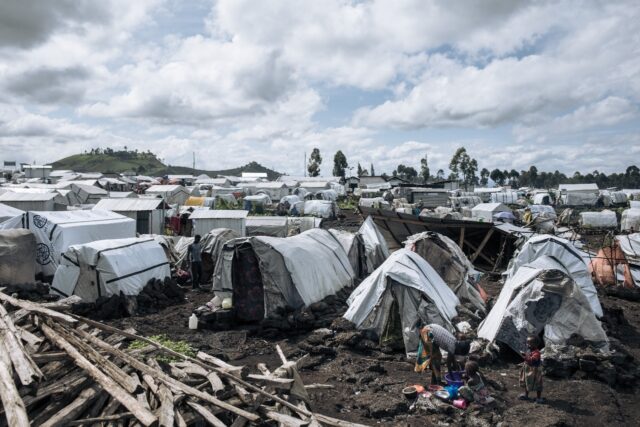A ceasefire announced between Kinshasa and Kigali-backed rebels in the eastern Democratic Republic of Congo got a cool receptions from many of those living in the conflict zone Wednesday.
The agreement, reached through Angolan mediation, will silence guns from Sunday in the conflict waged between the Congolese army and M23 rebels in the North Kivu province since late 2021. It was agreed on Tuesday.
Belgium, France, the European Union and the United on Wednesday all hailed the signing of the latest agreement.
“We hope this agreement will help create the conditions for de-escalation of tensions between the DRC and Rwanda and enable the safe return of those internally displaced to their homes,” said Stephane Dujarric, spokesman for UN Secretary-General Antonio Guterres.
But a half-dozen such ceasefires and truces have already been declared but never respected for more than a few weeks.
And in Goma, the capital of North Kivu, currently encircled by the rebels and Rwandan army units, there was little enthusiasm for the announcement.
“It won’t lead to anything,” said Tresor Tonde Mabala, a student at La Sapientia University in Goma.
“The ceasefire benefits the enemy. The rebels never respect the decisions of the international community.”
Fragile truce
A two-week “humanitarian truce” was already announced on July 5 by the United States, then extended by 15 days to August 3.
Fighting has subsided, but NGOs suspect the armed groups are taking advantage of the situation to regroup for fresh fighting a renewed clash.
“Agreements are often violated by the parties to the conflict because at the current stage, the M23 and Rwandan army are continuing to strengthen their positions”, said Georges Katsongo, president of a civil society group in the Lubero region in the north of the province where the rebels have steadily gained ground in recent months.
DR Congo’s armed forces (FARDC) supported, by a coalition of armed groups under the name “Wazalendo”, meaning patriots in Swahili, have been unable to halt the rebel advance.
“I agree that hostilities should cease, because our army has shown itself to be weak in the face of the enemy,” said Roland Kambale, a resident of the Mabanga Nord district in Goma. “We continue to lose our brothers and sisters in their war.”
People “sacrificed”
The ceasefire will be monitored by a reinforced “Ad Hoc Verification Mechanism”, Angolan mediators said, referring to a monitoring system previously created under the auspices of a regional grouping.
“We are not going to accept this. We call on the Congolese people in the east to resist,” said Patrick Paluku, a member of the Veranda Mutsanga pressure group in Goma.
“We believe that from August 4, the Wazalendo have the right to attack the enemy. Otherwise the rebels risk advancing,” he said.
Thousands of displaced people have crowded into the provincial capital, sometimes just a stone’s throw away from M23 positions.
The ceasefire “does not reassure us”, said one person at a displacement camp, who spoke on the condition of anonymity.
“What would reassure us would be if the Rwandan soldiers withdrew from our villages,” he added.
Kakule Musovoli, a farmer in an M23-controlled town of Kirumba, pleaded for the authorities “to stop sacrificing us.
“People are starving here,” he said.
hbm-sm-gu-clt/giv/jj

COMMENTS
Please let us know if you're having issues with commenting.